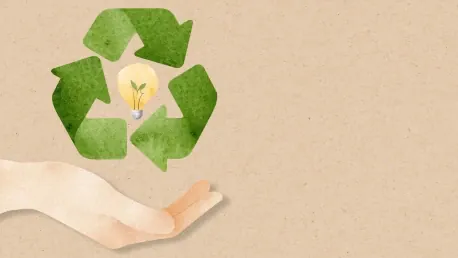With unprecedented growth in awareness regarding sustainability and ecological balance, Waste Management (WM) has taken significant strides towards eco-friendly solutions. In its latest endeavor, WM has announced a comprehensive strategy involving substantial investments into recycling facilities and the production of renewable natural gas (RNG). This ambitious approach underscores WM’s commitment to both environmental stewardship and innovative technology, marking a substantial leap forward in the sustainability sector.
Expanding Recycling Capabilities
Enhanced Recycling Infrastructure
The latest strategy reveals plans for WM to open several new facilities dedicated to recycling and RNG, underscoring a major facet of this $3 billion investment initiative spread through the next three years. Among the significant developments, the Mesquite Creek Recycling Facility in New Braunfels, Texas, is notable due to its positioning in one of the fastest-growing markets in the United States. Utilizing advanced artificial intelligence and automation, this facility aims to optimize the recycling process, thereby significantly boosting the capture rates for reusable materials.
Complementing these efforts is the Elkridge Recycling Facility located near Baltimore, WM’s largest recycling plant by hourly processing capacity. This facility is equipped with cutting-edge technology that ensures maximum efficiency and material recovery. The integration of artificial intelligence into sorting processes has been particularly beneficial, enabling precise separation of materials that might otherwise go unnoticed in traditional systems. These upgraded facilities contribute not only to local waste management capabilities but also signal a broader shift towards more sustainable practices nationwide.
Technological Advancements in Recycling
Investing heavily in technology, WM’s recycling plants employ optical sorters and intelligent sorting equipment to improve operational efficiency and material recovery. These advancements facilitate higher capture rates of recyclable materials, ensuring that even communities with previously limited access to recycling facilities can benefit. In addition to enhancing the overall purity of recycled outputs, these technological upgrades significantly reduce the operational costs and environmental impact associated with waste disposal.
Tara Hemmer, WM’s Chief Sustainability Officer, emphasizes that these technological benefits are pivotal for the company’s long-term sustainability goals. Enhanced material capture and sorting processes are not merely incremental improvements; they represent transformative steps towards comprehensive waste management solutions. By incorporating these technologies, WM is capable of adapting to evolving market demands and regulatory requirements, ensuring that recycling processes remain at the forefront of innovation and effectiveness.
Advancing Renewable Energy Solutions
Major RNG Projects
In the realm of renewable energy, WM has also made substantial headway with the introduction of new RNG facilities. The Fairless RNG facility near Philadelphia stands out as the company’s most significant project to date. As the largest RNG facility owned by WM, it plays a crucial role in converting landfill gas into pipeline-quality RNG. Such developments not only enhance the company’s portfolio but also position WM’s landfills as integral energy production hubs for local communities.
Additionally, new RNG initiatives in the Chicago area reinforce WM’s dedication to expanding its renewable energy capabilities. These facilities are designed to harness landfill gas, converting it into viable energy sources that can be fed into the existing energy grid. The success of such initiatives exemplifies the potential of RNG technology in addressing environmental concerns while simultaneously aiding economic stability by providing consistent, renewable energy solutions.
Commitment to Community and Innovation
WM President and CEO Jim Fish highlights the company’s dedication to leveraging technological innovation for community investment. This emphasis on future-forward solutions is evident in WM’s acquisition of Blue Sky Resources, a move that enhances the company’s ability to effectively monitor and manage landfill emissions. Using the AirLogic analytics platform allows WM to maintain stringent control over air emissions, further underscoring the company’s commitment to minimizing its environmental footprint.
This progressive approach speaks volumes about WM’s long-term strategy, which integrates renewable energy production with comprehensive waste management practices. By fostering such synergies, WM is well-positioned to address both contemporary concerns and future challenges, ensuring that sustainability remains at the heart of its operational ethos. These efforts are a testament to the company’s ongoing commitment to not just meeting but exceeding industry standards for environmental responsibility.
Significant Progress and Future Prospects
Achieving Milestones
WM has already marked significant milestones with the completion of numerous recycling and RNG facilities. As of April, eight RNG plants and twenty-seven recycling facilities have been completed, showcasing substantial progress under the overarching investment initiative. These accomplishments are indicative of WM’s efficient execution of its strategic plan, meeting both project timelines and objectives. With additional sites scheduled to become operational in the coming years, the full realization of this investment aims to add 2.8 million tons to the annual recycling capacity and generate twenty-five million British thermal units of RNG annually.
Future-Forward Perspective
With heightened awareness about sustainability and ecological balance, Waste Management (WM) has made significant progress toward eco-friendly solutions. WM’s latest initiative involves an elaborate strategy that includes substantial investments in advanced recycling facilities and the production of renewable natural gas (RNG). This ambitious plan reaffirms WM’s commitment to environmental stewardship and cutting-edge technology, representing a considerable leap forward in the sustainability sector.
WM’s investment in recycling facilities will enable improved sorting, processing, and repurposing of waste materials, making additional efforts to reduce landfill usage and promote circular economy practices. The focus on RNG production will help reduce greenhouse gas emissions and provide a cleaner alternative to traditional fossil fuels. By transitioning to renewable resources and enhancing recycling operations, WM aims to positively impact both the environment and energy landscape. This comprehensive strategy highlights WM’s dedication to innovation, sustainability, and playing a crucial role in shaping a greener future.









